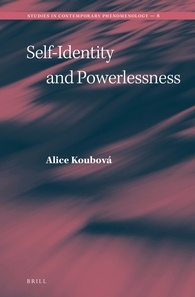 |
In the book Self-Identity and Powerlessness, Alice Koubová develops a concept of human existence that is not essentially dependent on the definition of identity of an individual human being. The author shows how, owing to too much emphasis on finding and identifying human identity, the philosophy goes beyond grasping the essential aspects of human existence. Through the analysis of other philosophers (R. Descartes, P. Ricoeur, M. Merleau-Ponty, J. Derrida), literary examples (M. Kundera) and the results of social psychology (A. Ehrenberg), emphasizing and developing moments of helplessness in Heidegger's fundamental ontology, Alice Koubová matures to the original phenomenology of alteration of existence and affairs. . |